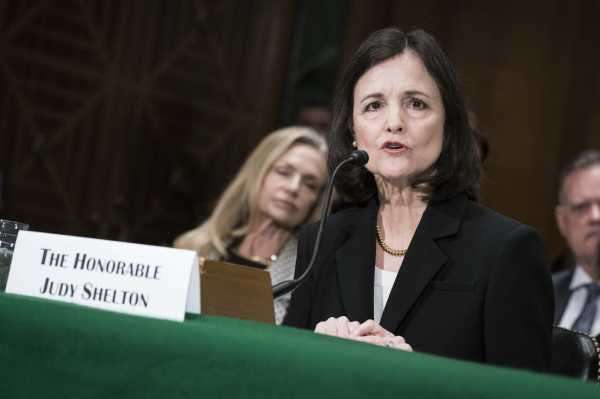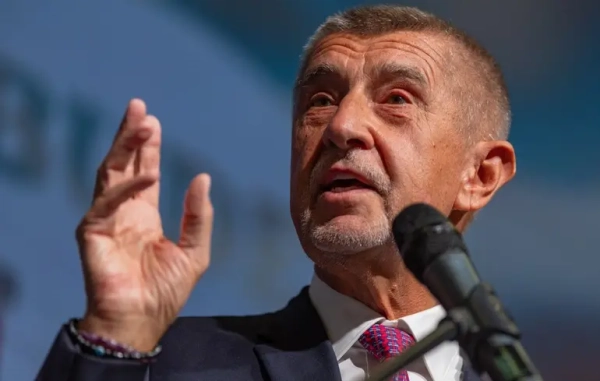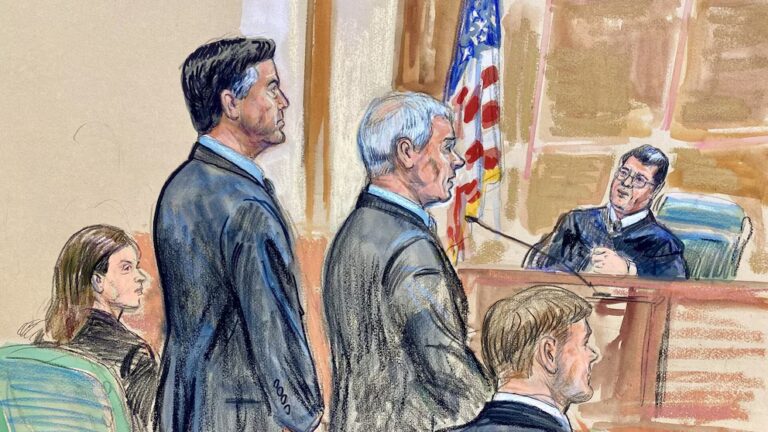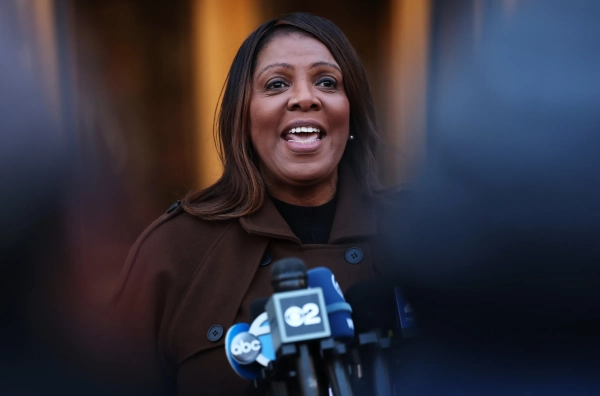
Back in 2017, Judy Shelton said she would “love” to be chair of the Federal Reserve but recognized it was unlikely given she was “sort of tagged with this gold bug idea.” Three years later, Shelton isn’t headed for the chairmanship, but she is poised to potentially join the Fed’s seven-member board of governors.
Turns out Republicans might not have as many reservations about Shelton as she does herself. Well, at least not all of them.
President Donald Trump has nominated Shelton, who advised his 2016 campaign and most recently served as United States director of the European Bank for Reconstruction and Development, to one of two open spots on the Fed’s governing board. The Senate Banking Committee approved her nomination in July by a narrow margin, alongside that of Christopher Waller, from the Federal Reserve Bank of St Louis. While Waller is a pretty traditional pick, Shelton is not — in fact, until recently, she was basically considered a no-go to get through a full Senate vote.
Shelton may be on her way to a confirmation vote in the Senate as early as this week. But the vote is expected to be a tight one, as three Republican senators have now said they won’t support Shelton, and a Covid-19 scare has put two more GOP senators in quarantine this week. There’s a chance Vice President Mike Pence will have to break a tie vote. The Waller vote still isn’t scheduled.
Shelton’s pick is an unconventional one. She has a long history as a proponent of some pretty unorthodox views, including returning the US to the gold standard — a theory out of step with mainstream economics. During the Obama years, Shelton was a fierce critic of the Fed for keeping interest rates low, but under Trump, she has changed her tune to align with the president. Back in 2019, she made a habit of giving interviews from the Trump International Hotel in Washington, DC — not exactly a sign of independence.
“Her views seem to have turned on a dime, either to get a nomination from Trump or because she was nominated by Trump, but it’s a little hard to know,” said Sarah Binder, a senior fellow of governance studies at the Brookings Institution and political science professor at George Washington University. “The issue is which Judy Shelton would show up at the Fed?”
To be sure, Shelton will be just one of seven members of the Fed’s board of governors and one of 12 members of the Federal Open Market Committee (FOMC), which is in charge of interest-rate setting. And unless she can convince her colleagues to get on board with her, it’s unclear how much power she’ll actually have. There was speculation Trump might try to appoint her Fed chair if he won a second term, but he lost.
Still, many experts, economists, and politicians say her presence is concerning, even if she’s not running the show.
“We clearly need diverse voices at the Fed,” said Natasha Sarin, an assistant professor of law and finance at the University of Pennsylvania. “[But] this kind of diversity is just diversity of bad and poorly informed economic thought that is not going to be valuable in any real or meaningful way and is honestly just dangerous, mostly dangerous to the legitimacy of the Fed.”
What’s up with Judy Shelton and the gold standard
Shelton, 66, has been a fixture in conservative politics and economics for quite some time, which means that a lot of things she’s written, said, and done are now being scrutinized. That’s been part of the issue with her nomination.
Many of Shelton’s critics have focused in on her years-long advocacy for the US to return to the gold standard or something like it. That policy would mean that the value of the dollar would be linked to a set physical amount of gold, silver, or some other marker instead of being a “floating currency,” meaning its value fluctuates according to foreign exchange markets, as it does now. The US abided by the gold standard in the late 19th century but began to abandon it during the Great Depression — for good reason.
Most mainstream economic thinking today rejects returning to the gold standard, which many experts say actually did harm during the Great Depression, because people hoarded gold after the 1929 stock market crash. “The gold standard is a bad means to a bad end,” wrote former Fed vice chairman Alan Blinder in a Wall Street Journal op-ed in 2019.
President Richard Nixon officially closed the door on the gold standard in 1971. Shelton, however, has said, “let’s go back.”
“Under a gold standard, if people think the paper money printed by government is losing value, they have to switch to gold,” she wrote in a 2009 WSJ op-ed. The same year, Shelton wrote Money Meltdown, which advocated for a unified international monetary regime to return to the gold standard to combat inflation. In 2012, she joined TheGoldStandardNow.org, a website dedicated to the issue.
In her confirmation hearing before the Senate Banking Committee in February, Shelton was circumspect on her position, saying that she does not advocate “going back to a prior historical monetary arrangement” and insisting instead she had simply looked at “historical systems” to gain “valuable insights” to inform policy now.
During the hearing, Shelton also sought to distance herself from past suggestions that the FDIC, which insures bank deposits, encourages risky behavior from banks, and from times she had questioned whether the Fed should act independently from the White House and Congress.
It’s highly unlikely the US would go back to the gold standard or that Shelton would be able to change thinking on it at the Fed, but the situation is emblematic of many of the concerns about her nomination in the first place: It’s not really clear which version of Shelton, the pre-Trump one or the post-Trump one, is up for a vote.
Which Shelton would be headed to the Fed?
While Shelton’s unconventional positioning on gold and some other issues make her a bit of an awkward fit at the Fed, even more awkward is how she seems to have contorted her opinions post-Trump compared to pre-Trump. When President Barack Obama was in office, she, like Trump, was critical of the Fed for keeping interests rate low and doing too much to help the economy. Now that Trump is in the White House, she’s had a change of heart. In 2019, she told the Washington Post she would “lower rates as fast, as efficiently, as expeditiously as possible.” To be clear, this was well before Covid-19 hit, inducing a recession.
It was a position in line with Trump’s, who around the same time suggested he might try to get rid of Fed Chair Jerome Powell and often complained that Powell’s decisions were not to his liking.
The Post interview, like an interview Shelton did with the Financial Times weeks earlier, took place at the president’s Washington, DC, hotel. During the FT interview, she also suggested she’d like to host a conference on the gold standard at Trump’s Mar-A-Lago. In other words, she is quite cozy with the president and a loyalist.
If Shelton does wind up on the Fed’s board of governors, one big question is what she would advocate for and what she actually believes. The cynical (and perhaps likeliest) read here is that Shelton believes what she has for most of her career — that the gold standard is good, the Fed is often not, and higher interest rates are often better. Is it possible she’s gotten religion on interest rates and a more accommodative approach from the central bank? Sure. Or she’s just gotten religion on Trump.
“It’s up to her which Judy Shelton shows up to the Fed and how she uses her position,” said Binder, of the Brookings Institution. “Is it a soapbox for her old position, or is she a true believer in low rates to [stimulate] an economy when an economy is under stress?”
Shelton did not return a request for comment for this story. The White House declined to comment on the record.
Why Trump did this makes sense. Senate Republicans, not so much.
President Trump has had a rough go with some of his attempted Fed picks, namely, the ones who have been a little off the beaten path. He appointed Powell, who most economists and experts agree has done a good job in his post, even though Trump complains about him a lot.
But Trump also attempted to get Herman Cain, the now-deceased former businessman and Tea Partier, and right-wing economist Stephen Moore on the Fed’s board of governors in the past. As my former colleague Matt Yglesias explained, those two didn’t make it through confirmation:
If Shelton is confirmed and, eventually, the more conventional Waller, Trump will have filled all of the open seats on the Fed’s board of governors, leaving none left for President-elect Joe Biden to fill himself. Lael Brainard would remain the only governor appointed by a Democrat, though she is considered a frontrunner to be the next treasury secretary, which would open up her seat.
Prior to the election, there was speculation that Trump, if reelected, would seek to oust Powell as Fed chair and put Shelton in his place, the idea being she was probably pretty likely to bend to the president’s wishes. Now that Trump has lost, her power within the Fed will likely be quite diminished. She’ll only be one voice — and vote — of many.
What’s a little murky is why so many Senate Republicans are on board with this. They could easily confirm Trump’s more conventional nominee, Waller, and give the president time to nominate someone else who doesn’t hold such extreme views. Republican Sens. Susan Collins of Maine and Mitt Romney of Utah said they planned to vote against Shelton’s nomination over the summer, but Sen. Lisa Murkowski of Alaska last week said she’ll support her, which seemingly precipitated Senate Majority Leader Mitch McConnell’s announcement that he would set a vote on the Senate floor.
Then on Monday, Sen. Lamar Alexander (R-TN) decided he wouldn’t support Shelton after all. “I am not convinced that she supports the independence of the Federal Reserve Board as much as I believe the Board of Governors should. I don’t want to turn over management of the money supply to a Congress and a president who can’t balance the federal budget,” he said in a statement.
That means the vote is going to be a tight one. Sens. Rick Scott (R-FL) and Chuck Grassley (R-IA) are quarantining because of Covid-19 exposure, and it’s not clear whether Sen. Kamala Harris (D-CA), the vice president-elect, will travel to Washington to vote. The vote could very well end up tied, which would leave it up to Vice President Pence to cast the deciding vote. The GOP doesn’t have a ton of time to push this one through, because in early December, Democrat Mark Kelly will take over Republican Sen. Martha McSally’s seat in Arizona.
“Coronavirus is resurging, the economy is suffering, and rather than putting out the fire Republicans are fanning the flames with their nominee,” said Sen. Sherrod Brown (D-OH), ranking member of the Senate Banking Committee, in a statement. “The American people sent a clear message with this election they voted for a stable, and competent economic policy, not fringe theories, and a return to the gold standard. Judy Shelton is not fit for the Federal Reserve’s Board of Governors and her nomination must be rejected immediately.”
Judy Shelton is slated to be a governor, not the queen
If Trump were sailing to reelection, Shelton’s nomination could be quite worrisome. The Fed is supposed to be independent from political whims, and Shelton appears anything but. (To be fair, Trump isn’t the only president to try to lean on the Fed, though he’s done so much more publicly than his predecessors.) With Biden in office, her position may not be ideal, but it’s not the end-all, be-all, either.
“Shelton’s impact on Fed policy-making almost surely won’t match the attention her nomination has received. She can make speeches and give media interviews that will produce headlines and occasionally rankle Fed colleagues,” wrote Ian Katz, director at Capital Alpha Partners, in a recent note. “But as one vote among what would be seven Fed governors, Shelton’s influence will be limited. Even if she gains a cult following outside the Fed — something we wouldn’t rule out — it won’t move the other Fed governors.”
“Absent allies, there’s a limit to the impact of any given governor,” Binder said.
The term Shelton is meant to take over expires in early 2024, meaning her term will be up before the next presidential election.
Still, critics continue to express deep concerns over Shelton. In January, Sen. Elizabeth Warren (D-MA) sent Shelton a six-page letter asking her to explain her “radical” views and her “history of forming views on policy based on political loyalties.”
“One of the very important elements is that where the Fed derives a lot of both respect and importance as an agent of monetary policy has to do with the fact that it is fundamentally independent of political considerations,” Sarin, the law and finance professor, said. “You need smart, qualified people who understand how the financial system works in the real world and are going to be thoughtful about the kinds of interventions that are going to be valuable to help the economy, and I don’t need to know anything more about her to understand that she is not that person.”
It’s easy to question why Shelton, who in the past has questioned whether a central bank is needed, even really wants the post in the first place.
I spoke with Shelton for TheStreet in 2017 about the president’s considerations for choosing the next chair of the Federal Reserve, and some of the questions she saw around the issue then are the same ones at issue with her nomination as a governor now. She talked about her reputation as a “gold bug” as well as the Fed’s independence and concerns about the president picking someone too close to him. “There are always issues if the Fed chairman is seen to be someone who works for the president, I don’t know if that’s generally a good thing, so that might be a reservation,” Shelton said.
She also said that she would like to see “someone who is not afraid to challenge the conventional wisdom” at the Fed. Now, it looks like that person might be her.
Will you help keep Vox free for all?
Millions of people rely on Vox to understand how the policy decisions made in Washington, from health care to unemployment to housing, could impact their lives. Our work is well-sourced, research-driven, and in-depth. And that kind of work takes resources. Even after the economy recovers, advertising alone will never be enough to support it. If you have already made a contribution to Vox, thank you. If you haven’t, help us keep our journalism free for everyone by making a financial contribution today, from as little as $3.
Sourse: vox.com






